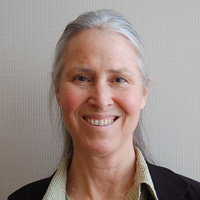In 1997, Berkeley repealed its ordinance prohibiting sitting and panhandling after an ACLU challenge. But the Downtown Berkeley Association, which initiated the ordinance, never stopped pining for some way to clear the streets of homeless people and panhandlers, whom it blames for a decline in sales, and is currently lobbying for an anti-sitting law similar to San Francisco's.
Berkeley has panhandlers. But it also has hundreds of empty storefronts owned by landlords reluctant to rent at lower rates, empty storefronts which burden a once-vibrant downtown. Commercial leases tend to be long, so locking into even three years at a lower rate is less appealing than taking a tax write-off for the previous, higher rate.
Even a business like Amanda's Feel Good Fresh Food, which won entrepreneur of the year and design awards, cited the inflexibility of the rental rate as the reason it closed in December.
There's no political downside to stomping on the poor, and Mayor Tom Bates has the votes to criminalize sidewalk sitting. But before Berkeley sends another potentially pointless anti-poor ordinance through the courts, it makes sense to institute a retail vacancy fee on landlords who keep storefront locations empty for years, refusing to acknowledge the recession's effect on merchants generally, and the effect of empty storefronts specifically on a struggling commercial area.
Merchants can't sidestep the recession any more than they can avoid paying mandatory fees to a misguided business association. But they can avoid the hypocrisy of blaming panhandlers by addressing the real burden on our commercial areas and supporting a retail vacancy fee. I'd much rather be annoyed by a panhandler now and then, than continue losing businesses like the art house theater, the music store and the ice cream parlor.
